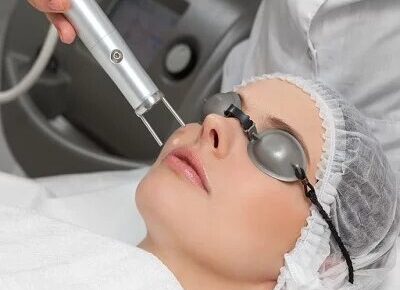When we think of the healthcare industry, we can never forget the medical device industry. The medical industry cannot function well without its equipment.
However, the impact of these devices depends largely on how efficiently they reach healthcare facilities and then the patients.
Medical device distributorship acts as the vital bridge between manufacturers and healthcare providers, ensuring that state-of-the-art medical devices are available when and where they are needed most.
What is a Medical Distributorship?
A company that bridges the gap between the manufacturer and the healthcare provider is known as a medical device distributorship. They supply pharmacies, clinics, hospitals, and other healthcare facilities with medical devices or products. Usually, medical distributors buy medical supplies straight from producers. They occasionally even purchase these medicinal products from different vendors before delivering them to medical establishments.
A specific kind of medical goods, such as surgical instruments, medical gadgets, diagnostic tools, or medications, may be the focus of medical distributorships. In order to satisfy the demands of different healthcare professionals, they could also offer a broad variety of medical supplies.
The Role of Medical Device Distributors in Healthcare
Although it seems petty, medical device distributors have a main role in the healthcare industry.
Facilitating Access to Advanced Technologies
Medical device distributors play a pivotal role in ensuring that hospitals, clinics, and other healthcare facilities have access to cutting-edge medical technologies. By working closely with manufacturers, they help streamline the process of bringing advanced devices to market, making them accessible to healthcare providers in both urban and rural areas. This accessibility is especially critical for life-saving equipment, such as ventilators, defibrillators, and imaging machines, which can make the difference between life and death in emergency scenarios.
Ensuring Compliance and Quality Control
The medical device industry operates under stringent regulatory requirements, including standards set by organizations like the FDA and ISO. Distributors are responsible for ensuring that every device they supply meets these rigorous quality and safety benchmarks. This process involves thorough inspections, proper documentation, and adherence to storage and transportation protocols to preserve device integrity. By guaranteeing compliance, distributors help healthcare providers maintain trust in the products they use, ultimately contributing to improved patient safety.
Streamlining Supply Chain Management for Better Care
Here’s how it’s done.
Timely Delivery of Devices
In the fast-paced world of healthcare, timely access to medical devices can significantly influence patient outcomes. Medical device distributors excel at optimizing supply chains to ensure that devices reach healthcare facilities quickly and efficiently. This capability becomes particularly crucial in emergencies, where delays can have dire consequences. For example, during the COVID-19 pandemic, distributors played an instrumental role in delivering ventilators and personal protective equipment to overwhelmed healthcare systems.
Inventory Management
Effective inventory management is another critical service provided by medical device distributors. They help healthcare facilities maintain an optimal stock of essential devices, reducing the risk of shortages or overstocking. By implementing advanced tracking systems and analytics, distributors can anticipate demand and adjust supply levels accordingly. This not only minimizes waste but also ensures cost-effectiveness, allowing healthcare providers to allocate resources where they are needed most.
Supporting Healthcare Providers with Training and Education
Medical equipment distributors are a source of support for the healthcare providers.
Hands-on Training
The rapid advancement of medical technology often means that healthcare providers need ongoing training to stay proficient in using new devices. Medical device distributors address this need by offering hands-on training sessions for physicians, nurses, and other medical staff. For instance, when a hospital acquires a new surgical robot, the distributor typically provides in-depth training to ensure that the surgical team can operate it safely and effectively. This emphasis on education not only enhances the confidence of healthcare professionals but also translates to better patient care.
Technical Support and Troubleshooting
Beyond training, distributors provide technical support to address any issues that arise during device usage. This support can range from routine maintenance to emergency troubleshooting, ensuring that healthcare providers can rely on their equipment at all times. For example, if an imaging machine malfunctions during a critical diagnostic procedure, the distributor’s technical team can step in to resolve the issue promptly, minimizing disruptions to patient care.
Driving Innovation in Patient Care
Being a distributor, you can drive innovation in patient care too. Delivering patient-centric care can be integrated effectively.
Feedback Loop Between Providers and Manufacturers
Medical device distributors serve as intermediaries between healthcare providers and manufacturers, facilitating a valuable feedback loop. Through their interactions with physicians and technicians, distributors gain insights into the challenges faced in clinical settings. They relay this feedback to manufacturers, who can then refine their products to better meet the needs of healthcare providers and patients. This collaborative process drives continuous improvement in medical technology, ultimately enhancing patient outcomes.
Adoption of New Technologies
Distributors also play a key role in promoting the adoption of innovative medical devices. From AI-driven diagnostic tools to minimally invasive surgical instruments, they introduce healthcare providers to technologies that can revolutionize patient care. By demonstrating the benefits of these devices and providing training on their use, distributors help accelerate their integration into clinical practice. For example, the introduction of portable ultrasound machines has enabled faster and more accurate diagnoses in remote and underserved areas, thanks to the efforts of medical device distributors.
Enhancing Patient Outcome
Here’s how you can improve patient outcomes:
Improved Accuracy and Efficiency in Diagnosis and Treatment
Advanced medical devices distributed by experts have a profound impact on the accuracy and efficiency of healthcare delivery. Diagnostic tools such as MRI machines, CT scanners, and laboratory analyzers enable precise identification of medical conditions, reducing the likelihood of misdiagnosis. Similarly, innovative treatment devices like robotic surgical systems and drug delivery pumps enhance procedural accuracy, leading to better recovery rates and shorter hospital stays.
Reducing Disparities in Healthcare Access
One of the most significant contributions of medical device distributors is their ability to reduce disparities in healthcare access. By ensuring that even remote and underserved communities receive high-quality medical devices, distributors help bridge the gap between urban and rural healthcare systems. This equitable distribution of resources plays a vital role in improving health outcomes for populations that might otherwise lack access to advanced medical care.
Conclusion
To conclude, distributors of medical devices are essential to the healthcare ecosystem, guaranteeing the availability, dependability, and efficacy of life-saving technologies. They are much more than just logistical partners. They directly improve patient care and results through their work in supply chain management, compliance, training, and innovation. The need for knowledgeable distributors who can handle the complexity of this fast-paced market is growing along with the demand for cutting-edge medical products.
Moreover, opt for healthcare employment opportunities and get started today. Find a reliable job hunt space and gain an upper hand in starting your dream career.




